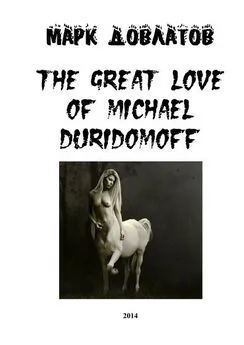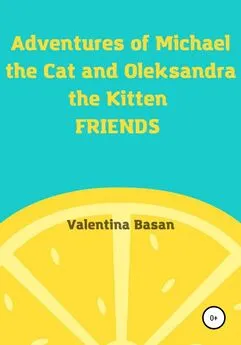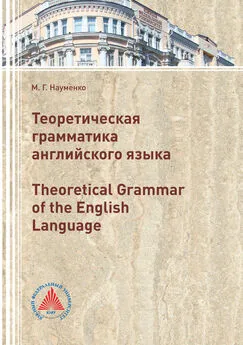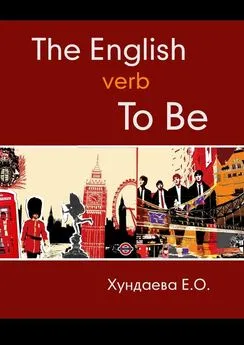Michael Ondaatje - The English Patient
- Название:The English Patient
- Автор:
- Жанр:
- Издательство:неизвестно
- Год:неизвестен
- ISBN:нет данных
- Рейтинг:
- Избранное:Добавить в избранное
-
Отзывы:
-
Ваша оценка:
Michael Ondaatje - The English Patient краткое содержание
The English Patient - читать онлайн бесплатно полную версию (весь текст целиком)
Интервал:
Закладка:
What he had discovered the night before held true. He had survived only through luck. There was no possible way to defuse such a bomb in situ without just blowing it up. He drew and wrote out everything he knew on the large blueprint sheet. At the bottom he wrote: Drawn by desire of Lord Suffolk, by his student Lieutenant Kirpal Singh, 10 May 1941 .
He worked flat-out, crazily, after Suffolk’s death. Bombs were altering fast, with new techniques and devices. He was barracked in Regent’s Park with Lieutenant Blackler and three other specialists, working on solutions, blueprinting each new bomb as it came in.
In twelve days, working at the Directorate of Scientific Research, they came up with the answer. Ignore the fuze entirely. Ignore the first principle, which until then was “defuse the bomb.” It was brilliant. They were all laughing and applauding and hugging each other in the officers’ mess. They didn’t have a clue what the alternative was, but they knew in the abstract they were right. The problem would not be solved by embracing it. That was Lieutenant Blackler’s line. “If you are in a room with a problem don’t talk to it.” An offhand remark. Singh came towards him and held the statement from another angle. “Then we don’t touch the fuze at all.”
Once they came up with that, someone worked out the solution in a week. A steam sterilizer. One could cut a hole into the main case of a bomb, and then the main explosive could be emulsified by an injection of steam and drained away. That solved that for the time being. But by then he was on a ship to Italy.
“There is always yellow chalk scribbled on the side of bombs. Have you noticed that? Just as there was yellow chalk scribbled onto our bodies when we lined up in the Lahore courtyard.
“There was a line of us shuffling forward slowly from the street into the medical building and out into the courtyard as we enlisted. We were signing up. A doctor cleared or rejected our bodies with his instruments, explored our necks with his hands. The tongs slid out of Dettol and picked up parts of our skin.
“Those accepted filled up the courtyard. The coded results written onto our skin with yellow chalk. Later, in the lineup, after a brief interview, an Indian officer chalked more yellow onto the slates tied around our necks. Our weight, age, district, standard of education, dental condition and what unit we were best suited for.
“I did not feel insulted by this. I am sure my brother would have been, would have walked in fury over to the well, hauled up the bucket, and washed the chalk markings away. I was not like him. Though I loved him. Admired him. I had this side to my nature which saw reason in all things. I was the one who had an earnest and serious air at school, which he would imitate and mock. You understand, of course, I was far less serious than he was, it was just that I hated confrontation. It didn’t stop me doing whatever I wished or doing things the way I wanted to. Quite early on I had discovered the overlooked space open to those of us with a silent life. I didn’t argue with the policeman who said I couldn’t cycle over a certain bridge or through a specific gate in the fort—I just stood there, still, until I was invisible, and then I went through. Like a cricket. Like a hidden cup of water. You understand? That is what my brother’s public battles taught me.
“But to me my brother was always the hero in the family. I was in the slipstream of his status as firebrand. I witnessed his exhaustion that came after each protest, his body gearing up to respond to this insult or that law. He broke the tradition of our family and refused, in spite of being the oldest brother, to join the army. He refused to agree to any situation where the English had power. So they dragged him into their jails. In the Lahore Central Prison. Later the Jatnagar jail. Lying back on his cot at night, his arm raised within plaster, broken by his friends to protect him, to stop him trying to escape. In jail he became serene and devious. More like me. He was not insulted when he heard I had signed up to replace him in the enlistment, no longer to be a doctor, he just laughed and sent a message through our father for me to be careful. He would never go to war against me or what I did. He was confident that I had the trick of survival, of being able to hide in silent places.”
He is sitting on the counter in the kitchen talking with Hana. Caravaggio breezes through it on his way out, heavy ropes swathed over his shoulders, which are his own personal business, as he says when anyone asks him. He drags them behind him and as he goes out the door says, “The English patient wants to see you, boyo.”
“Okay, boyo.” The sapper hops off the counter, his Indian accent slipping over into the false Welsh of Caravaggio.
“My father had a bird, a small swift I think, that he kept beside him, as essential to his comfort as a pair of spectacles or a glass of water during a meal. In the house, even if he just was entering his bedroom he carried it with him. When he went to work the small cage hung off the bicycle’s handlebars.”
“Is your father still alive?”
“Oh, yes. I think. I’ve not had letters for some time. And it is likely that my brother is still in jail.”
He keeps remembering one thing. He is in the white horse. He feels hot on the chalk hill, the white dust of it swirling up all around him. He works on the contraption, which is quite straightforward, but for the first time he is working alone. Miss Morden sits twenty yards above him, higher up the slope, taking notes on what he is doing. He knows that down and across the valley Lord Suffolk is watching through the glasses.
He works slowly. The chalk dust lifts, then settles on everything, his hands, the contraption, so he has to blow it off the fuze caps and wires continually to see the details. It is hot in the tunic. He keeps putting his sweating wrists behind himself to wipe them on the back of his shirt. All the loose and removed parts fill the various pockets across his chest. He is tired, checking things repetitively. He hears Miss Morden’s voice. “Kip?” “Yes.” “Stop what you’re doing for a while, I’m coming down.” “You’d better not, Miss Morden.” “Of course I can.” He does up the buttons on his various vest pockets and lays a cloth over the bomb; she clambers down into the white horse awkwardly and then sits next to him and opens up her satchel. She douses a lace handkerchief with the contents of a small bottle of eau de cologne and passes it to him. “Wipe your face with this. Lord Suffolk uses it to refresh himself.” He takes it tentatively and at her suggestion dabs his forehead and neck and wrists. She unscrews the Thermos and pours each of them some tea. She unwraps oil paper and brings out strips of Kipling cake.
She seems to be in no hurry to go back up the slope, back to safety. And it would seem rude to remind her that she should return. She simply talks about the wretched heat and the fact that at least they have booked rooms in town with baths attached, which they can all look forward to. She begins a rambling story about how she met Lord Suffolk. Not a word about the bomb beside them. He had been slowing down, the way one, half asleep, continually rereads the same paragraph, trying to find a connection between sentences. She has pulled him out of the vortex of the problem. She packs up her satchel carefully, lays a hand on his right shoulder and returns to her position on the blanket above the Westbury horse. She leaves him some sunglasses, but he cannot see clearly enough through them so he lays them aside. Then he goes back to work. The scent of eau de cologne. He remembers he had smelled it once as a child. He had a fever and someone had brushed it onto his body.
VIII
The Holy Forest
KIP WALKS OUT of the field where he has been digging, his left hand raised in front of him as if he has sprained it.
He passes the scarecrow for Hana’s garden, the crucifix with its hanging sardine cans, and moves uphill towards the villa. He cups the hand held in front of him with the other as if protecting the flame of a candle. Hana meets him on the terrace, and he takes her hand and holds it against his. The ladybird circling the nail on his small finger quickly crosses over onto her wrist.
She turns back into the house. Now her hand is held out in front of her. She walks through the kitchen and up the stairs.
The patient turns to face her as she comes in. She touches his foot with the hand that holds the ladybird. It leaves her, moving onto the dark skin. Avoiding the sea of white sheet, it begins to make the long trek towards the distance of the rest of his body, a bright redness against what seems like volcanic flesh.
In the library the fuze box is in midair, nudged off the counter by Caravaggio when he turned to Hana’s gleeful yell in the hall. Before it reaches the floor Kip’s body slides underneath it, and he catches it in his hand.
Caravaggio glances down to see the young man’s face blowing out all the air quickly through his cheeks.
He thinks suddenly he owes him a life.
Kip begins to laugh, losing his shyness in front of the older man, holding up the box of wires.
Caravaggio will remember the slide. He could walk away, never see him again, and he would never forget him. Years from now on a Toronto street Caravaggio will get out of a taxi and hold the door open for an East Indian who is about to get into it, and he will think of Kip then.
Now the sapper just laughs up towards Caravaggio’s face and up past that towards the ceiling.
“I know all about sarongs.” Caravaggio waved his hand towards Kip and Hana as he spoke. “In the east end of Toronto I met these Indians. I was robbing a house and it turned out to belong to an Indian family. They woke from their beds and they were wearing these cloths, sarongs, to sleep in, and it intrigued me. We had lots to talk about and they eventually persuaded me to try it. I removed my clothes and stepped into one, and they immediately set upon me and chased me half naked into the night.”
“Is that a true story?” She grinned.
“One of many!”
She knew enough about him to almost believe it. Caravaggio was constantly diverted by the human element during burglaries. Breaking into a house during Christmas, he would become annoyed if he noticed the Advent calendar had not been opened up to the date to which it should have been. He often had conversations with the various pets left alone in houses, rhetorically discussing meals with them, feeding them large helpings, and was often greeted by them with considerable pleasure if he returned to the scene of a crime.
She walks in front of the shelves in the library, eyes closed, and at random pulls out a book. She finds a clearing between two sections in a book of poetry and begins to write there.
He says Lahore is an ancient city. London is a recent town compared with Lahore. I say, Well, I come from an even newer country. He says they have always known about gunpowder. As far back as the seventeenth century, court paintings recorded fireworks displays .
He is small, not much taller than I am. An intimate smile up close that can charm anything when he displays it. A toughness to his nature he doesn’t show. The Englishman says he’s one of those warrior saints. But he has a peculiar sense of humour that is more rambunctious than his manner suggests. Remember “I’ll rewire him in the morning.” Ooh la la!
He says Lahore has thirteen gates—named for saints and emperors or where they lead to .
The word bungalow comes from Bengali .
Читать дальшеИнтервал:
Закладка:










